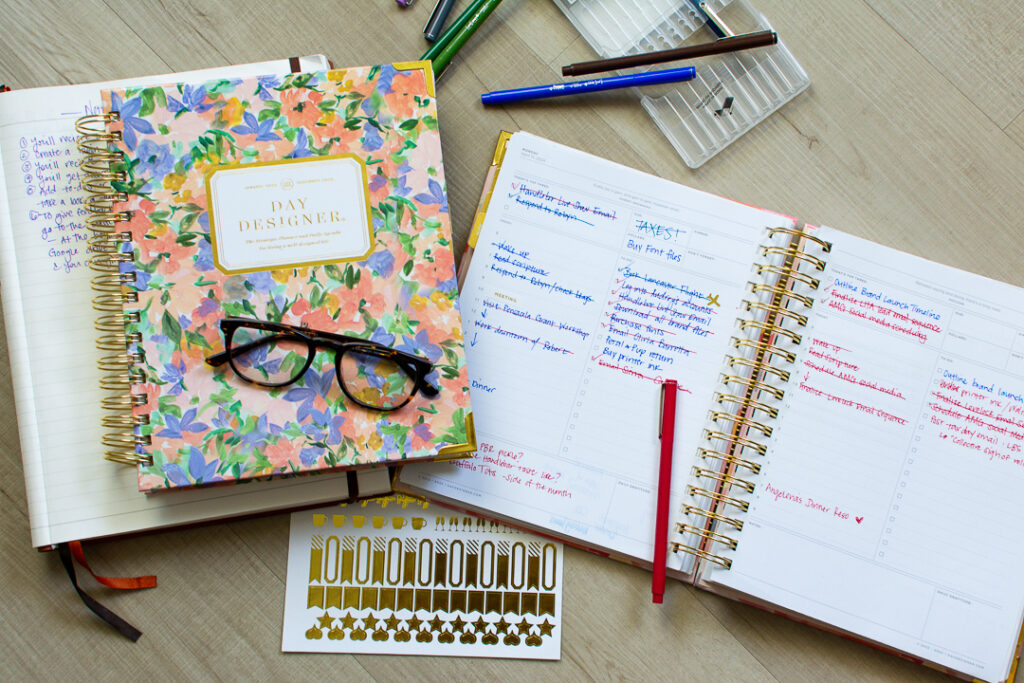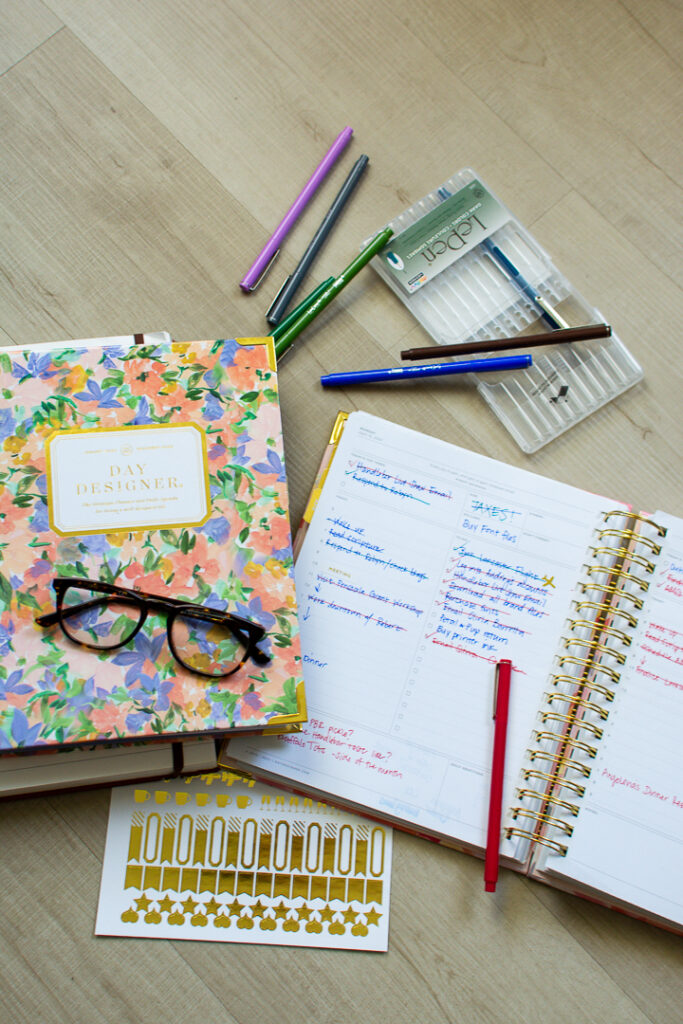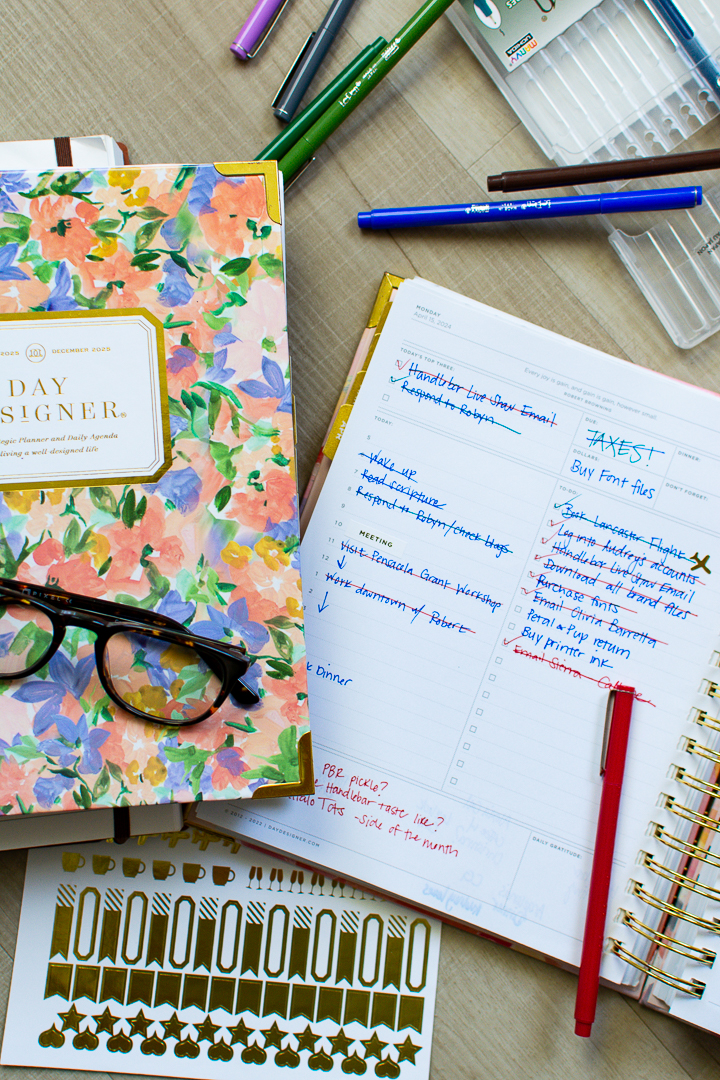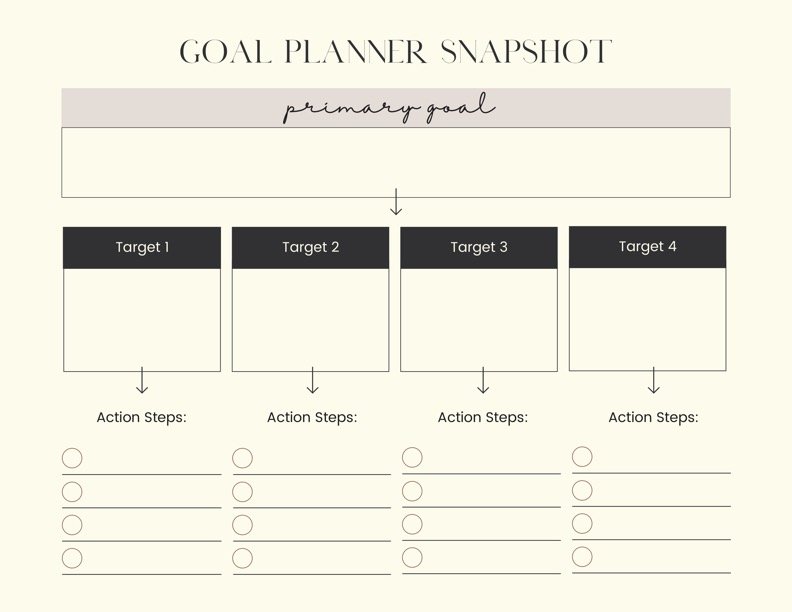I used to think routine was the enemy of the creative mind. Intense, I know. I’ve come to realize that, as a creative, routine is actually my greatest ally. Understanding why routines are essential is a solid first step. But in my opinion, learning how to build routines is one of the greatest lessons a small business owner can learn. And just to be clear, it’s something I’m still learning!

Hacking The Traditional Work Week
As a small business owner, you may have left the corporate world solely to escape the ‘9-5’.
Now that I’m in the thick of small business ownership (and when I see my husband NOT bringing work home with him) I wonder, “was it really that bad?!”
There are huge benefits to working for yourself and defining your own schedule. If you so desire, you can wake up at 5 am, put dinner in the crockpot at noon, hop on a client call at 1, run to the post office at 3, and shut your laptop long before the evening rush hour begins. However, the 9-5 schedule has some merits as well. For one, having a defined daily start and end time provides much needed built-in structure.
The keys to maintaining a schedule you define for yourself are routine and discipline; two things I honestly didn’t bother to practice back when someone else created my schedule.
Routine vs Schedule
Have you ever heard the saying, “you need to plan to plan”? If you’re wondering why schedule and routine are important, think of it like this:
You first need to establish a routine in order to formulate your schedule.
For example, say you abide by the following routine every morning:
- Wake up
- Make coffee
- Read a devotional book
- Get dressed + brush teeth
- Check your emails
- Start on client work
The routine is consistent every day, but the activities involved may not occur at the same times every day. If you’re following a strict schedule it may look more like this:
- 6:15 AM – Wake up
- 6:20 AM – Make coffee
- 6:30 AM – Read a devotional book
- 7:30 AM – Get dressed + brush teeth
- 8 AM – Check your emails
- 9 AM – Start on client work

How To Build A Schedule For Yourself
If your goal is to abide by a strict schedule every day, first figure out how to build routines in your life.
Start with a broad list of activities you’d like to complete every day (not the precise list of website edits you need to work through—we’ll get to that later). Commit to following these routine activities for a few weeks until you feel like you’re doing them without thinking.
How Long To Build A Routine
According to Healthline.com, it can take anywhere from 18 to 254 days for a person to form a new habit and an average of 66 days for a new behavior to become automatic. Habit formation looks different for everyone depending on what you’re doing so take it one day at a time.
Maybe during the first couple of weeks, you slowly add timeframes to the activities you want to complete. Schedule out the major milestones in your day (Start time, lunch break, workout, end time) and use these as your guideposts. Eventually, you can work up to scheduling your entire day if that’s your goal. The best part of working for yourself is scheduling non-work-related tasks like meditating, working out, or going to the dog park.
Goal Setting
Setting goals, whether monetary or otherwise, is so important for your business. Not only will setting a goal guide how you build your routines and schedule, but it will also give you a framework to track your progress.
Part of my 1:1 small business consulting program consists of a 2-hour SMART Goal Setting exercise. This exercise allows clients to define a SMART goal, set targets, and outline a schedule of corresponding action steps. The targets serve almost like routines they are committing to follow and the action steps provide a more specific schedule for getting the work done.

Using a Planner Effectively
I wrote another post entirely about this topic so I won’t get in too deep on this subject. Buttttt, I feel the need to emphasize the importance of using a daily planner effectively.
Writing down what you need to accomplish helps you commit it to memory. I am 10x more likely to stick to a schedule when I can look at it in a day-by-day format. My method of focusing on only one thing per day has worked wonders for my tendency to leave tasks unfinished. Not to mention, it has taught me how to increase daily productivity outside of business as well.
Establishing Accountability
Just like anything else, you’re more likely to build a routine and stick to it if you have a system or person in place to keep you accountable. As a small business owner, it’s essential to surround yourself with like-minded individuals who have navigated the small business landscape and know the challenges that come with it. Hiring a business coach or bringing on a business partner is a great way to build accountability into your business.

How To Create Routine In Your Life
Many people assume having the freedom to work for yourself means taking “a weekend” off whenever you want. Even if it’s a Tuesday. The dangers of that are twofold; first, you could easily procrastinate and put off work since you have 6 other working days to do it, or you could quickly slip into a work-all-the-time mindset because you don’t have anyone defining your hours.
You probably guessed it: I have a tendency towards the latter.
If you work for yourself, it’s crucial to set boundaries for the sake of normalcy, balance, and increasing personal productivity. If you don’t know where to begin, start practicing routine building.
Here’s the mindset I’ve adopted— learning how to build routines—and following them—is the best way to form healthy habits. Scheduling is the next step toward meeting deadlines and practicing discipline.
If you’re growing a small business, let’s chat about creating goals and targets that will set you up for success. I’d love to work with you one on one!

